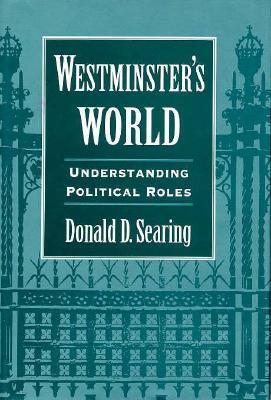This title is currently out of stock. Leave us your email address, we’d let you know when it’s in stock again!
-

A note on book covers: while we do our best to ensure the accuracy of cover images, ISBNs may at times be reused for different editions of the same title which may hence appear as a different cover.
Westminsters World: Understanding Political Roles
Westminsters World: Understanding Political Roles
Couldn't load pickup availability
Searing has interviewed 521 Members of Parliament—including Conservative Ministers Margaret Thatcher, Peter Walker, and James Prior; Labour Ministers Harold Wilson, Barbara Castle, and Denis Healey; as well as rising stars like Michael Heseltine, Norman Tebbitt, David Owen, and Roy Hattersley. He also includes voices from Westminster's backbenchers, women, senior backbenchers, and newcomers, highlighting their key roles in shaping political life.
Utilizing both quantitative and qualitative analysis and integrating social and economic theories about political behavior, Searing addresses concerns about power, duty, ambition, and representation. Westminster's World provides political scientists, historians, anthropologists, and the public with valuable insights into the House of Commons and offers a convincing model for understanding the structure and dynamics of political roles.
Details of Book
A note on book covers: while we do our best to ensure the accuracy of cover images, ISBNs may at times be reused for different editions of the same title which may hence appear as a different cover.

-
One Line Summary
Insight into MPs' motivations shaping British politics.
-
Who is this book for?
If you're curious about the inner workings of British Parliament and what motivates the men and women who serve there, this book offers a fascinating look. Through interviews with many notable MPs, Searing reveals the personal hopes, ambitions, and frustrations that drive political careers. It's like having a behind-the-scenes pass into Westminster's world, perfect for anyone interested in political behavior and institutional influence.

